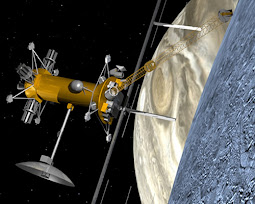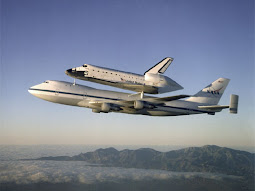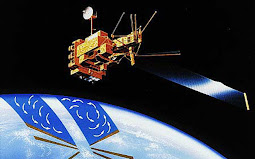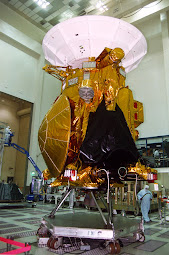The news on June 4 that United Airlines (UAUA) plans to place a massive order for as many as 150 new jets was seen by some observers as the latest example of how some companies are shrewdly exploiting the economic downturn in hopes of landing a bargain. Indeed, by soliciting bids at a time when aircraft makers are already reeling from widespread cancellations, United may be able to extract major concessions from Boeing (BA) and Airbus, a possibility that isn't lost on United CEO Glenn Tilton.
"Our timing is opportune, as this is a competitive environment for manufacturers," Tilton said in a June 4 memo to employees disclosing the potential order, which some analysts estimate could be worth as much as $10 billion over the next couple of decades.
CEO Tilton: On His Own
But the plan, first reported by The Wall Street Journal, is perhaps more an indication that Tilton has given up hope, at least for now, that he can make good on his hopes to package the Chicago-based carrier for sale to another airline. Industry insiders say United's plans for a large aircraft order is a tacit admission by Tilton that a merger isn't likely, and that he has no choice but to operate United as an independent company.
"I think he had to accept that there just aren't any buyers for United out there right now," says Scott Hamilton, managing director of Leeham Co., an Issaquah (Wash.)-based industry consulting firm.
While Tilton has publicly argued for the need for further industry consolidation, he has also rejected any suggestions that he was managing the airline for a quick sale. Still, from the time the former oil company executive joined United in 2002 as CEO, Tilton has seemed to be on a mission to oversee a sale of the airline. Tilton's best qualification for the job seemed to be that as CEO of Texaco he had engineered the sale of that company to Chevron (CVX), negotiating a sale price in 2000 that was 25% higher than Texaco's market value at the time. And ever since the board of United's parent, UAL, recruited Tilton to take the troubled airline through its bankruptcy, it seems he has been looking for a merger partner.
United hadn't placed a single order for new aircraft in the seven years since Tilton came aboard, a move that some observers took as an indication of a possible sale, since acquirers would prefer not to inherit any orders for aircraft that are incompatible with their own fleets.
Rebuffed by Potential Partners
According to industry sources, Tilton, 61, tried to negotiate a sale to both Continental Airlines (CAL) and to Delta Air Lines (DAL) in recent years. And his public lobbying for the government to lower barriers that prevent foreign airlines from taking more than a passive, 24.9% stake in U.S. carriers was widely viewed within the industry as an effort to open United for sale to one of its European partners, such as Lufthansa (DLAKY).
But Congress has shown no desire to give foreign acquirers the 100% ownership they desire, at least not for now. And Delta and Continental eventually turned down United's overtures, mainly due to their concerns about the carrier's poisoned relationship with its unions and its operational inefficiencies.
Indeed, when United executives were shopping the carrier in 2007 they held out those operational inefficiencies, which analysts figure result in $1 billion in excess costs per year, as a potential source of profits for any acquirer that could bring a new rigor to United's operations. (In the end, Continental did agree to a marketing joint venture with United in which the two airlines would fly certain connecting legs for each other.)
Tilton's plan for a big order doesn't appear to be so much for expansion, but to fill the looming holes in United's fleet as it begins to retire its aging aircraft. In the June 4 memo, Tilton said the carrier would be looking for "a potentially significant number of aircraft that could ultimately replace our widebody fleet" and would "also be assessing appropriate replacement of our Boeing 757 fleet."
Where Will United Get the Money?
But it isn't clear how United will pay for such a massive order. The airline has reported losses for six straight quarters, and despite raising nearly $500 million in cash through various financings and asset sales, United is sitting on an unrestricted cash balance of just $2.5 billion, as compared with the $4.4 billion cash hoard held by Delta and the $3.3 billion at American Airlines (AMR).
That's still well above the $1 billion or so that analysts say an airline the size of United needs to function on a week-to-week basis. But analysts expect United to lose another $335 million over the rest of the year, and losses could rise even more if the economy remains in its current funk for longer than that. "I don't quite see how they can afford this," notes Robert Mann, an airline industry consultant in Port Washington, N.Y. "Their balance sheet is still strained."
If the economy remains soft, Mann believes United's best hope to raise cash for the initial plane purchases would come from selling the rights to future income from its frequent-flier miles to hotels, rental-car companies, and the myriad other companies that offer them to their own customers as incentives.
A Bidding War Is Unlikely
Despite the common perception that aircraft makers like Boeing and Airbus are suffering from order cutbacks, Hamilton notes that as a result of the long lead times in manufacturing, both companies are still scheduled to deliver about 480 aircraft this year, or roughly the same number as in 2008. Which means that while both Boeing and Airbus would salivate at the prospect of landing a $10 billion order, Hamilton thinks it's unlikely that either will be willing to offer the kind of fire-sale prices that Tilton may be anticipating. "The perception that the workers at Boeing and Airbus are just sitting on their hands is incorrect," he says.
And as much as United might want to reap the biggest discounts by staging a "winner-take-all" competition, Hamilton believes it will be hard for either of the two manufacturers to create a portfolio of aircraft that fits United's myriad needs. While the carrier has come to rely on Airbus for the narrow-body jets that it flies on its domestic routes, Hamilton notes that United is still likely to turn to Boeing for the long-haul aircraft it uses on its international routes.
"I just don't see that any one manufacturer, at this point in time, has the lineup that fits all of their specific needs," Hamilton says.
source: http://www.businessweek.com/bwdaily/dnflash/content/jun2009/db2009064_857013.htm

















